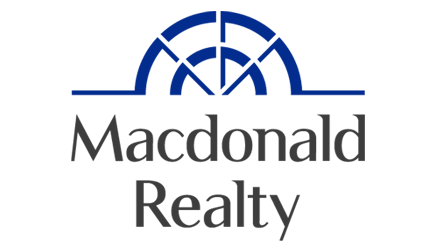
Introduction To Real Estate Investment In British Columbia
Real estate investment in British Columbia (BC) presents a myriad of opportunities for both seasoned and novice investors. Nestled between the Pacific Ocean and the Rocky Mountains, BC’s diverse geography spans vibrant urban centers such as Vancouver and Victoria, alongside serene rural landscapes. This unique blend not only attracts tourists from around the globe but also offers a variety of real estate investment avenues.
The decision between investing in commercial or residential real estate in BC hinges on multiple factors including market trends, investment goals, and risk tolerance. While commercial real estate offers potential for high returns and long-term leases, residential properties provide consistent rental income and tend to be more resilient during economic downturns. Understanding these nuances is crucial for anyone looking to navigate the lucrative yet complex terrain of BC’s real estate market.
Understanding Commercial Real Estate Investments: The Pros
Understanding the allure of commercial real estate investments in British Columbia begins with acknowledging its unique advantages. Primarily, commercial properties—ranging from office buildings to retail spaces—offer the potential for higher yield compared to their residential counterparts. This stems from longer lease agreements, which not only ensure a steady cash flow but also reduce turnover costs. Additionally, commercial tenants often take on a significant portion of property expenses, including maintenance and taxes, further enhancing the investor’s net income.
Moreover, investing in commercial real estate opens up opportunities for professional relationships with businesses and entrepreneurs, adding a layer of diversity and stability to one’s investment portfolio. In British Columbia’s dynamic market, these aspects make commercial real estate an attractive option for those looking to expand their investment horizons beyond the residential sphere.
The Challenges Of Investing In Commercial Real Estate
Investing in commercial real estate in British Columbia presents unique challenges that distinguish it from its residential counterpart. One significant hurdle is the higher initial capital requirement, making it less accessible for average investors. Additionally, commercial properties are more sensitive to economic fluctuations, meaning that a downturn can lead to vacant spaces and reduced income. The complexity of lease agreements in commercial real estate also adds another layer of difficulty, requiring investors to navigate longer lease terms and negotiations with businesses that have specific needs.
Moreover, managing these properties demands a deeper understanding of the market and regulatory compliance, as zoning laws and property taxes can significantly impact profitability. These factors contribute to the intricate landscape of commercial real estate investment, requiring thorough due diligence and expertise to navigate successfully.
Navigating Residential Real Estate Investments: Advantages To Consider
Navigating the landscape of residential real estate investments in British Columbia presents a unique set of advantages worth considering. This sector, characterized by its diversity, offers investors the opportunity to delve into various housing options, from single-family homes to multifamily units. The inherent stability of residential real estate, fueled by the perpetual demand for housing, provides a relatively consistent income stream through rental yields.
Moreover, residential properties typically experience less volatility compared to their commercial counterparts, making them an appealing choice for those seeking a more secure investment path. Additionally, the potential for capital appreciation over time further enhances the attractiveness of this investment category. With favorable tax treatments and the ability to leverage mortgage financing to amplify returns, residential real estate in British Columbia stands as a compelling option for both novice and seasoned investors alike.
The Downsides Of Investing In Residential Properties
Investing in residential properties in British Columbia, while attractive for its familiarity and perceived stability, does come with notable drawbacks. One significant downside is the emotional involvement often required in dealing with tenants, which can lead to potential legal and interpersonal conflicts. Residential investments are also highly susceptible to market fluctuations, meaning that economic downturns can severely impact rental demand and property values.
Moreover, the return on investment (ROI) might not be as immediate or as high as anticipated due to these market variables. Additionally, residential properties generally incur higher maintenance costs and more frequent repairs compared to commercial real estate due to more regular wear and tear. This can significantly eat into profits, especially if unexpected major repairs arise. These factors combined make residential property investment a venture that requires careful consideration and robust management strategies.
Comparative Analysis: Weighing Commercial Vs. Residential Real Estate Investments InBc
Comparative Analysis: Weighing Commercial vs. Residential Real Estate Investments in BC reveals a nuanced landscape shaped by distinct advantages and challenges inherent to each sector. Investing in British Columbia’s commercial real estate often promises higher returns and longer lease terms, contributing to a steady income flow. This sector, however, requires a substantial initial investment and expertise in navigating complex market dynamics.
Conversely, residential real estate in BC appeals for its accessibility to investors of varying scales, bolstered by the province’s growing population and sustained demand for housing. While typically offering lower returns compared to commercial investments, residential properties can provide more liquidity and less volatility, making them an attractive option for those seeking stability. Ultimately, the choice between commercial and residential real estate investments hinges on individual financial goals, risk tolerance, and market insight.
Conclusion: Making An Informed Decision On Real Estate Investment In British Columbia
Making an informed decision on whether to invest in commercial or residential real estate in British Columbia hinges on a nuanced understanding of one’s financial goals, risk tolerance, and market research. While residential real estate offers familiarity and potentially stable rental yields, it often requires hands-on management. Commercial real estate, conversely, can provide higher income potential and longer lease terms but comes with its own set of risks including higher initial investments and sensitivity to economic cycles.
Given British Columbia’s dynamic market landscape, investors should weigh the pros and cons carefully. Consulting with real estate professionals who have local expertise can also offer invaluable insights into both sectors. Ultimately, the choice between commercial and residential investment should align with one’s financial strategy, investment horizon, and personal commitment to managing property assets within this vibrant Canadian province.

